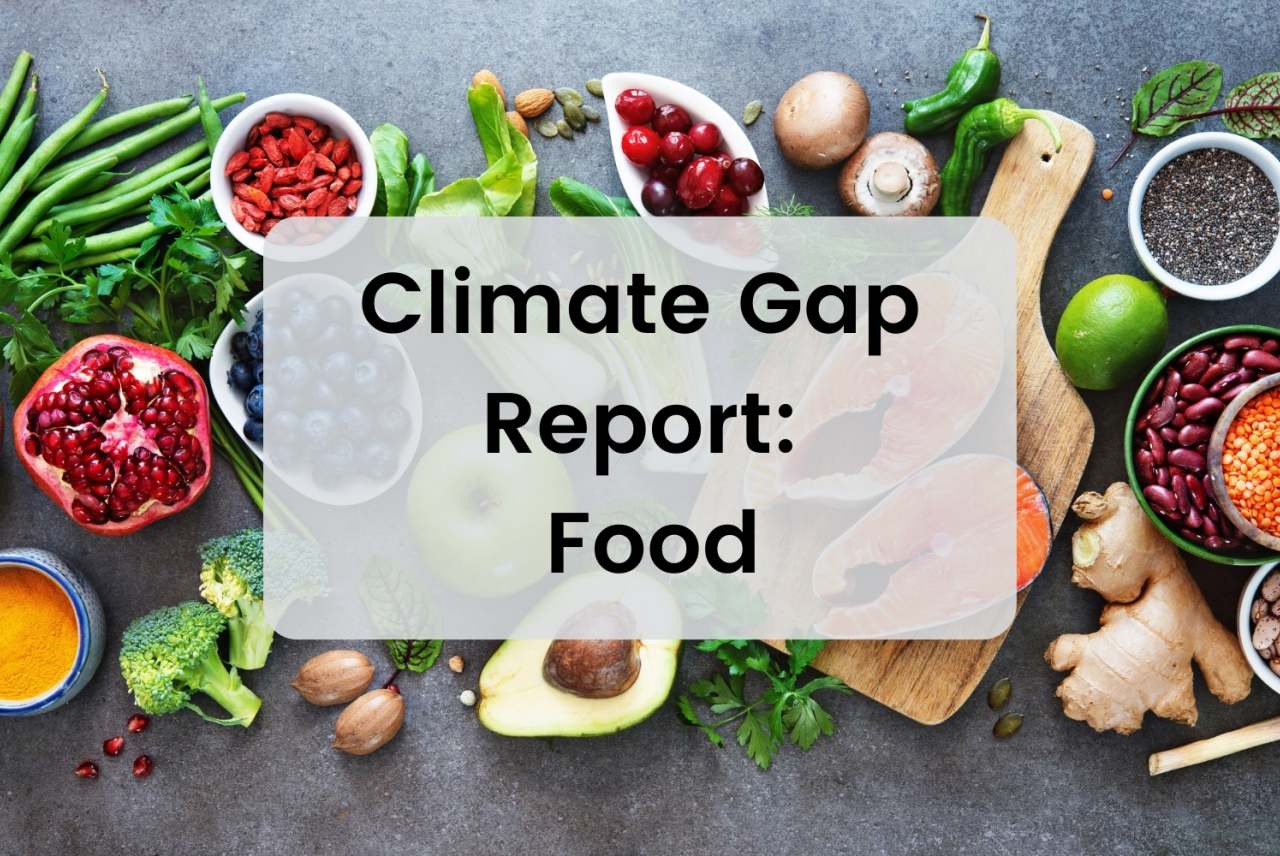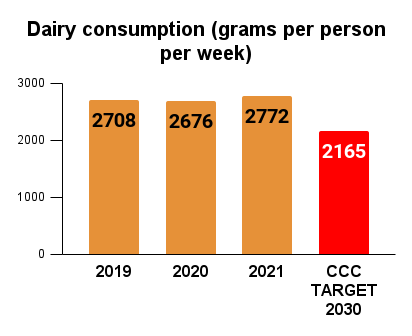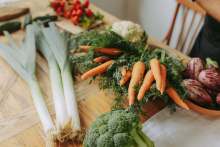Actions taken this decade will be crucial in mitigating the worst impacts of climate breakdown. Yet, according to our Climate Gap research we are not cutting emissions fast enough across any of our key lifestyle areas - including in our diets.
Food and the climate gap
A key finding of our Climate Gap report was that overall, previous slight progress on food appears to have reversed.
Despite the visible rise in plant-based food options in shops and eateries, the reported figures for average dairy consumption per week have risen (see graph), although the latest available data is two years old.
The Climate Change Committee (CCC) 2023 Progress report stated that it was ‘too early to say’ if meat consumption reductions were on target.
We are still waiting for an update from WRAP later this year in order to see if food waste has been reducing or not.








